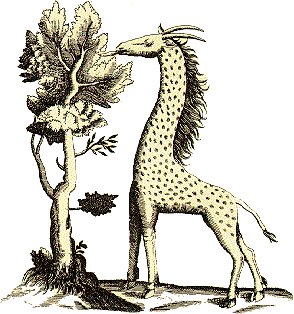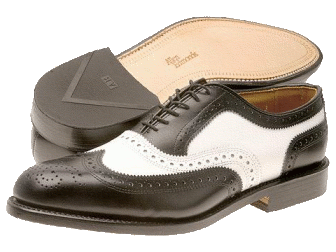 The Urbanite Magazine #25, Baltimore, July 2006 The Urbanite Magazine #25, Baltimore, July 2006
54
Wu Ming
(translated from the Italian by Shaun Whiteside)
Harcourt, 2006
If 54 were an animal, not a book, it would be a giraffe, because it is often said that a giraffe looks as if it were designed by committee.
The five Italian writers who publish together under the moniker of Wu Ming (Mandarin for “no-name”) believe a work of art should be judged on its merits, without reference to its creators. Multiple-author fiction is so unusual, however, that press interest has scuppered their half-hearted plea for anonymity, and details about them are easily found on the Internet. 54 is their second project (after Q, published in English in 2004) and, despite plots of different lengths and styles, a dappled consistency, and more false starts than the Kentucky Derby, it still manages to look adorable while covering a lot of ground at decent speed.
The novel wriggles with plots that do, sort of, knot together, like a child’s first attempt with shoelaces. A hotbed of partisans gather in a Bologna cafe; a lovelorn bartender sneaks into Yugoslavia to find his Communist father; Lucky Luciano transforms Naples, an Allied base, into the epicenter of the heroin trade; and everywhere political ideologies, the former driving forces of societal change, are being supplanted by drugs, money, and the cult of celebrity. Cinema has become “the dream factory of the free world … its conscience and its imagination.”
Then, onto the pages of 54, steps Cary Grant. In fiction, as on film, his arrival warms the cockles of your heart. Here, at last, is a man who can sort out all this falderal; a man’s man, woman’s man, man about town, with no need of garters as his socks “wouldn’t dare slip down his calves.” He is “the perfect prototype of Homo atlanticus: civil without being boring; moderate but progressive; rich, certainly, even extremely rich, but not dry, and not flabby either.”
 Grant’s lackluster film career was about to be revitalized through Hitchcock’s divine intervention, but only after, in Wu Ming’s fictitious tall tale, he agrees to a request by the British and American governments to visit Yugoslavia incognito, and use his renowned proletarian sympathies to woo Marshal Tito away from the “Reds” by evoking their shared respect for self-reinvention and French cuffs. Grant’s lackluster film career was about to be revitalized through Hitchcock’s divine intervention, but only after, in Wu Ming’s fictitious tall tale, he agrees to a request by the British and American governments to visit Yugoslavia incognito, and use his renowned proletarian sympathies to woo Marshal Tito away from the “Reds” by evoking their shared respect for self-reinvention and French cuffs.
While planning this escapade, Grant takes umbrage with the doppelganger chosen by Her Majesty’s Secret Service to deflect the press’s attention, not due to the second-hand-car salesman’s Quebecois vowels or tubby physique, but to his terrible taste in ties. Classier than James Bond, Grant represents the apolitical individual, above laws and beyond borders, who would become a role model for both people and policy for the rest of the century—globalization personified in perfectly pressed pants.
Wu Ming embody that peculiarly European brand of intellectual, who argue eloquently about radicalism while (probably) wearing handmade designer shoes—socially conscious and hip. Let’s give thanks for their risky experimentations, for their willingness to talk politics and pepper their work with allusions, for giving us an excuse (as though one were needed) to watch To Catch a Thief and North by Northwest all over again, for satirical fiction as sprawling, complicated, and contradictory as Europe itself. You’ll never meet another giraffe quite like it.
—Susan McCallum-Smith |







 Grant’s lackluster film career was about to be revitalized through Hitchcock’s divine intervention, but only after, in Wu Ming’s fictitious tall tale, he agrees to a request by the British and American governments to visit Yugoslavia incognito, and use his renowned proletarian sympathies to woo Marshal Tito away from the “Reds” by evoking their shared respect for self-reinvention and French cuffs.
Grant’s lackluster film career was about to be revitalized through Hitchcock’s divine intervention, but only after, in Wu Ming’s fictitious tall tale, he agrees to a request by the British and American governments to visit Yugoslavia incognito, and use his renowned proletarian sympathies to woo Marshal Tito away from the “Reds” by evoking their shared respect for self-reinvention and French cuffs.